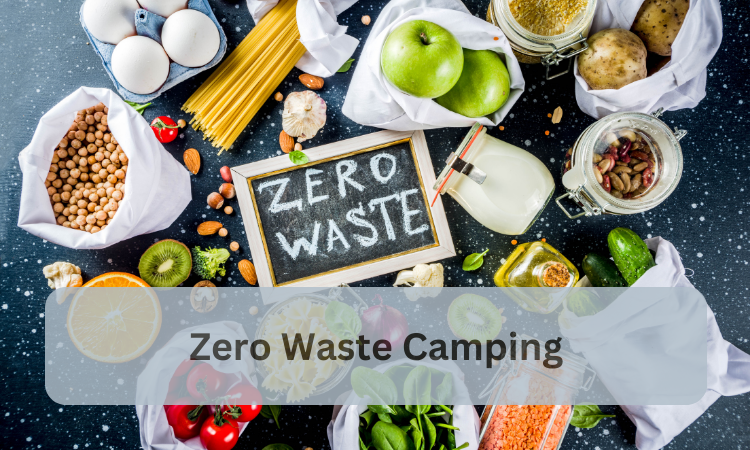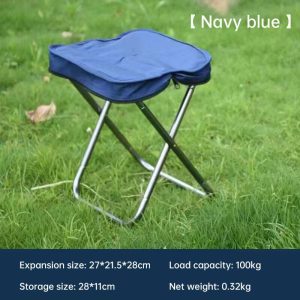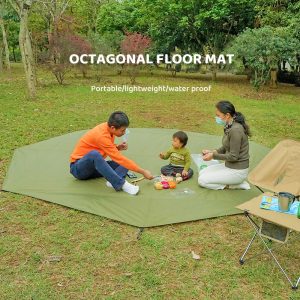Zero waste camping is a sustainable approach to outdoor adventure that prioritizes minimizing waste and environmental impact. It involves thoughtful planning, conscious consumption, and innovative strategies to reduce, reuse, and recycle resources while enjoying the great outdoors.
Benefits of Zero Waste Camping
Environmental Impact
Embracing zero waste camping significantly reduces the ecological footprint associated with traditional camping practices. By minimizing waste generation and adopting eco-friendly habits, campers contribute to the preservation of natural landscapes and wildlife habitats.
Cost-Effectiveness
Beyond its environmental benefits, zero waste camping can also save campers money in the long run. By investing in reusable gear, buying bulk ingredients, and reducing food waste, individuals can cut down on unnecessary expenses associated with disposable products and excessive packaging.
Personal Health Benefits
In addition to its environmental and financial advantages, zero waste camping promotes personal well-being. By consuming fresh, wholesome foods and engaging in physical activity outdoors, campers can experience improved mental and physical health during their adventures.
Challenges of Traditional Camping
Waste Generation
While camping offers a unique opportunity to connect with nature, traditional camping practices can inadvertently contribute to environmental degradation. Excessive waste generation, resource depletion, and ecosystem disruption are common challenges faced by campers worldwide.
Meal Planning for Zero Waste Camping
Pre-Trip Meal Preparation
Effective meal planning is essential for successful zero waste camping. Before embarking on a camping trip, individuals should prepare nutritious meals and snacks in advance to minimize packaging waste and ensure sufficient food supply throughout their journey.
Choosing Sustainable Ingredients
When selecting ingredients for camping meals, it’s important to prioritize sustainability. Opt for locally sourced, organic produce whenever possible, and choose products with minimal packaging to reduce waste and support eco-friendly farming practices.
Creative Cooking Techniques
One-Pot Meals
One-pot meals are a convenient and eco-friendly option for zero waste camping. By combining multiple ingredients in a single pot or skillet, campers can minimize dishwashing and conserve water while enjoying hearty and nutritious meals outdoors.
Foil Packet Cooking
Foil packet cooking is another popular technique for zero waste camping. By wrapping ingredients in aluminum foil and cooking them over an open flame or grill, individuals can create delicious and customizable meals with minimal cleanup and waste.
Using Local and Seasonal Produce
Incorporating local and seasonal produce into camping meals not only supports sustainable agriculture but also enhances the flavor and freshness of dishes. By shopping at farmers’ markets or participating in community-supported agriculture (CSA) programs, campers can access a diverse array of fruits and vegetables while reducing food miles and environmental impact.
Minimizing Food Waste
Portion Control
Practicing portion control is key to minimizing food waste while camping. By accurately estimating serving sizes and only preparing what is needed, individuals can avoid excess leftovers and ensure that edible resources are utilized efficiently.
Proper Storage of Perishables
Proper storage of perishable foods is essential for preventing spoilage and extending their shelf life during camping trips. Utilize coolers, insulated bags, and airtight containers to keep ingredients fresh and minimize the risk of foodborne illness in outdoor environments.
Reusing Leftovers
Leftovers can be transformed into delicious and nutritious meals with a little creativity and resourcefulness. By repurposing ingredients in new recipes such as veggie scrambles, stir-fry noodles, and vegetable soups, campers can minimize waste and make the most of their food supplies while camping.
Leftover Transformation Recipes
Veggie Scramble
Transform leftover vegetables into a hearty breakfast scramble by sautéing them with eggs or tofu and seasoning with herbs and spices. Serve with whole-grain toast or tortillas for a satisfying and nutritious morning meal.
Stir-Fry Noodles
Repurpose leftover cooked noodles and vegetables into a flavorful stir-fry dish by tossing them with soy sauce, garlic, and ginger in a skillet or wok. Add protein such as tofu, tempeh, or leftover meat for an extra boost of flavor and satiety.
Vegetable Soup
Combine leftover vegetables, beans, and grains with broth or water to create a hearty vegetable soup. Season with herbs and spices to taste, and simmer until flavors meld together for a comforting and nutritious meal option while camping.
Zero Waste Packing Tips
Reusable Containers
Invest in durable and lightweight reusable containers for storing and transporting food and beverages while camping. Opt for stainless steel, silicone, or glass containers that are dishwasher safe and free of harmful chemicals for maximum safety and sustainability.
Cloth Napkins and Towels
Ditch disposable paper products in favor of reusable cloth napkins and towels for cleaning up spills and messes while camping. Pack a few extra napkins and towels to use as pot holders or makeshift placemats for added convenience and versatility.
Biodegradable Toiletries
Choose biodegradable toiletries such as soap, shampoo, and toothpaste to minimize environmental impact while camping. Look for products made from natural and organic ingredients that are safe for use in outdoor settings and won’t harm ecosystems or wildlife.
Leave No Trace Principles
Dispose of Waste Responsibly
Follow Leave No Trace principles by packing out all trash and recyclables from your campsite and properly disposing of waste in designated receptacles. Minimize your impact on the environment by leaving natural areas cleaner than you found them for future generations to enjoy.
Respect Wildlife and Natural Habitats
Observe wildlife from a safe distance and avoid feeding or disturbing animals while camping. Respect natural habitats by staying on designated trails and campsites, and refrain from picking or damaging plants to preserve the integrity of ecosystems and biodiversity.
Conclusion
Zero waste camping offers a sustainable and rewarding approach to outdoor adventure, allowing individuals to connect with nature while minimizing their environmental impact. By embracing mindful consumption, creative cooking techniques, and Leave No Trace principles, campers can enjoy memorable experiences in the great outdoors while promoting conservation and stewardship of natural resources.
Unique FAQs
Q: Can I practice zero waste camping if I’m new to outdoor recreation?
A: Absolutely! Zero waste camping is accessible to individuals of all experience levels, and there are many resources available to help you get started, from online guides to community workshops.
Q: What if I forget to bring reusable items while camping?
A: While it’s ideal to pack reusable items for camping trips, don’t worry if you forget something. Simply do your best to minimize waste and prioritize eco-friendly practices with the resources you have available.
Q: Are there any zero waste camping gear recommendations?
A: Yes! Look for eco-friendly camping gear made from sustainable materials such as bamboo, recycled plastic, or organic cotton. Investing in durable and long-lasting products will help minimize waste and environmental impact over time.
Q: How can I dispose of food waste responsibly while camping?
A: Pack out all food scraps and leftovers from your campsite and dispose of them in designated trash receptacles or compost bins. Avoid burying or burning food waste, as this can attract wildlife and harm ecosystems.
Q: What are some additional tips for reducing waste while camping?
A: In addition to meal planning and leftover transformation, consider other strategies such as reducing single-use items, recycling packaging, and participating in campground clean-up efforts to minimize waste and promote sustainability.








